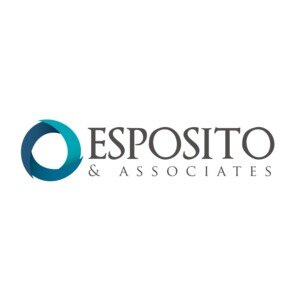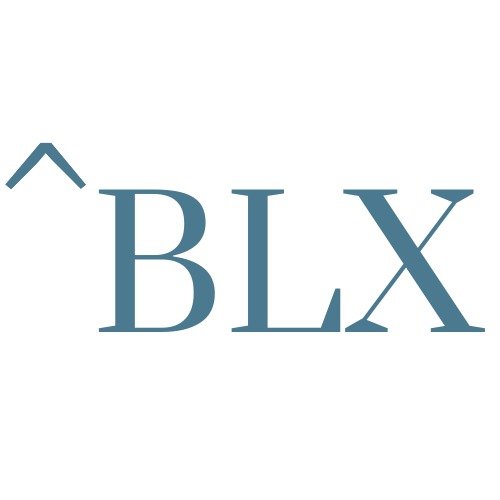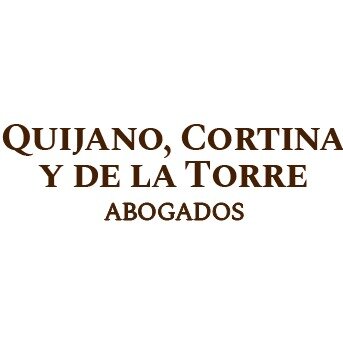Best FDA Law Lawyers in Mexico City
Share your needs with us, get contacted by law firms.
Free. Takes 2 min.
List of the best lawyers in Mexico City, Mexico
About FDA Law in Mexico City, Mexico
FDA Law in Mexico City refers to the legal framework that regulates the production, distribution, import, export, and commercialization of food, drugs, medical devices, and other products intended for human consumption and health care. Unlike the United States, Mexico does not have a government agency called the FDA. Instead, these matters are governed and enforced primarily by the Federal Commission for the Protection against Sanitary Risk, known as COFEPRIS (Comisión Federal para la Protección contra Riesgos Sanitarios). Mexico City's role as the nation's capital also means it is a hub for regulatory oversight, compliance checks, and legal proceedings related to these sectors.
Why You May Need a Lawyer
There are many scenarios where professional legal assistance is crucial in navigating FDA Law, or more accurately, health regulatory law overseen by COFEPRIS. You may need a lawyer if you are:
- Importing or exporting food, pharmaceuticals, cosmetics, or medical devices
- Launching or registering new products for sale in the Mexican market
- Facing compliance audits or investigations by COFEPRIS
- Responding to product recalls, seizures, or bans
- Seeking proper product labeling, advertising, or marketing approvals
- Challenging regulatory sanctions or fines
- Pursuing product registrations, health authorizations, or related permits
- Needing advice on cross-border regulations for international companies
- Involved in M&A, licensing, or distribution agreements where regulatory due diligence is needed
Legal experts help you prevent costly mistakes, ensure compliance, defend your interests, and facilitate business operations within proper legal bounds.
Local Laws Overview
FDA-related law in Mexico City falls under federal jurisdiction as established by the General Health Law (Ley General de Salud), enforced through COFEPRIS. Key aspects include:
- Product Registration and Approvals: All medicines, medical devices, food supplements, and specific foods must be approved and registered by COFEPRIS before being marketed.
- Manufacturing and Sanitary Licenses: Facilities must obtain operating licenses and comply with Good Manufacturing Practices (GMP) enforced by local and federal authorities.
- Labeling and Advertising: Packaging and promotional materials must adhere to Mexican Official Standards (NOMs) to protect consumers and prevent misleading information.
- Import and Export Controls: Importers and exporters need permits and must comply with sanitary requirements for cross-border movement of regulated products.
- Inspections and Enforcement: COFEPRIS conducts facility inspections and can impose penalties, suspend activities, or seize products found non-compliant.
- Recalls and Health Alerts: There are legal obligations to report adverse events, execute recalls, and notify health authorities of risks associated with products.
- Clinical Trials / Research: Clinical studies require specific permits and ethical approvals, with legal processes set out in the General Health Law.
Complying with these regulations is essential for legal operation and consumer safety in Mexico City and throughout Mexico.
Frequently Asked Questions
What is COFEPRIS and what does it do?
COFEPRIS is the main federal authority in Mexico responsible for regulating food, drugs, medical devices, and various products that affect public health. It oversees product registration, compliance, manufacturing licenses, and enforcement actions.
Do all drugs and medical devices need registration in Mexico?
Yes, before being marketed or distributed in Mexico, drugs and most medical devices must be registered with COFEPRIS and receive official authorization.
Are foreign products subject to the same laws as Mexican-made products?
Yes, all products-whether imported or locally produced-must comply with Mexican health regulations, including registration, labeling, and quality standards.
What happens if my product does not meet Mexican labeling standards?
Products not in compliance with labeling standards may be seized, removed from the market, or lead to fines and sanctions. Proper adjustment and prior legal review is recommended.
How long does the registration process usually take?
The timeline for product registration varies. For pharmaceuticals, it can take from several months up to a year, depending on the classification, complexity of the application, and current backlog.
Can COFEPRIS conduct surprise inspections?
Yes, COFEPRIS officers can perform unannounced inspections of manufacturing, distribution, and retail facilities to ensure compliance with health regulations.
What are the consequences of non-compliance?
Penalties for non-compliance include fines, suspension or revocation of sanitary licenses, product confiscation, recalls, and in extreme cases, criminal charges.
What documentation is needed to register a new food supplement?
You typically need technical dossiers, safety and efficacy data, ingredient specifications, proposed labeling, and manufacturing information, all in line with Mexican standards.
Can I advertise health products freely in Mexico?
No, all advertising of health products is strictly regulated and must be pre-approved by COFEPRIS to prevent false or misleading claims.
How can a lawyer help if my product is seized?
A lawyer can help you understand the grounds for seizure, prepare a legal response or appeal, negotiate with authorities, and guide you in corrective actions to recover your product or minimize penalties.
Additional Resources
The following resources and organizations are useful for those seeking more information about health and regulatory law in Mexico:
- COFEPRIS (Comisión Federal para la Protección contra Riesgos Sanitarios): Main regulatory body for food, drug, and health products
- Ministry of Health (Secretaría de Salud): Sets public health policy and standards
- Mexican Official Standards (Normas Oficiales Mexicanas or NOMs): Technical regulations for different products and processes
- Chamber of the Pharmaceutical Industry (CANIFARMA): Industry representation and compliance support
- Mexican Association of Pharmaceutical Research Industries (AMIIF)
- Local health departments in Mexico City: For city-specific requirements and support
A knowledgeable attorney can also provide access to specialized regulatory resources and updates relevant to your business or concern.
Next Steps
If you believe you need legal guidance related to FDA law or health regulatory issues in Mexico City, consider the following actions:
- Gather relevant documentation relating to your product, business, or regulatory issue
- Prepare a summary of your case or specific questions you may have
- Contact a qualified attorney specializing in health law, regulatory compliance, or administrative law in Mexico
- Request an initial legal consultation to assess your case and options
- Stay informed about updates in local laws and health regulations that may affect your operations
Legal advice tailored to your situation can save you time, prevent costly mistakes, and ensure you are fully compliant with Mexican law. Take prompt action to protect your business and your rights in this highly regulated field.
Lawzana helps you find the best lawyers and law firms in Mexico City through a curated and pre-screened list of qualified legal professionals. Our platform offers rankings and detailed profiles of attorneys and law firms, allowing you to compare based on practice areas, including FDA Law, experience, and client feedback.
Each profile includes a description of the firm's areas of practice, client reviews, team members and partners, year of establishment, spoken languages, office locations, contact information, social media presence, and any published articles or resources. Most firms on our platform speak English and are experienced in both local and international legal matters.
Get a quote from top-rated law firms in Mexico City, Mexico — quickly, securely, and without unnecessary hassle.
Disclaimer:
The information provided on this page is for general informational purposes only and does not constitute legal advice. While we strive to ensure the accuracy and relevance of the content, legal information may change over time, and interpretations of the law can vary. You should always consult with a qualified legal professional for advice specific to your situation.
We disclaim all liability for actions taken or not taken based on the content of this page. If you believe any information is incorrect or outdated, please contact us, and we will review and update it where appropriate.

















